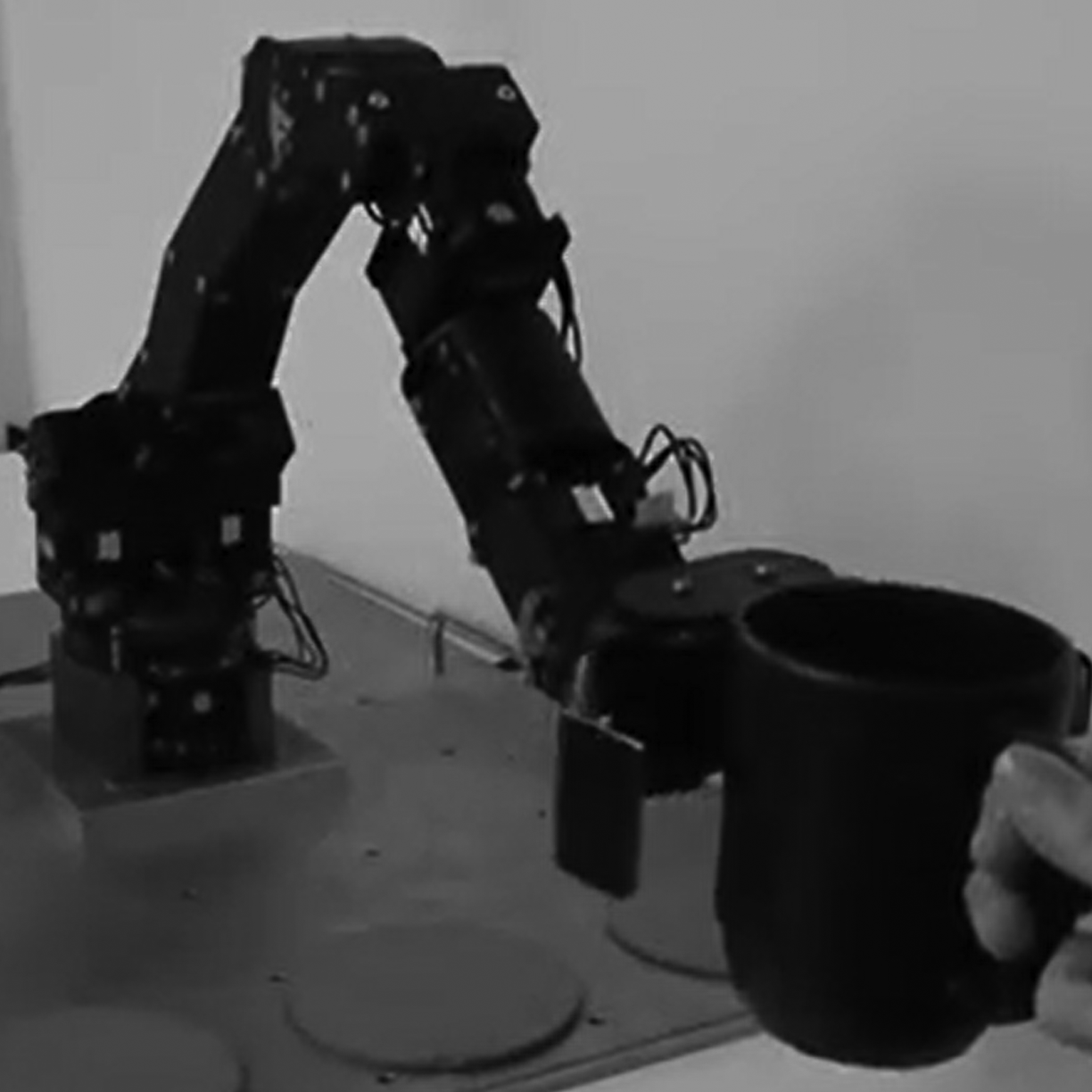 |
Kansei adaptative robot control |
| We develop novel control schemes that enable robots to be expressive through their movements. We base our research on concepts from Kansei enginering and control theory such as null-space control and optimal control. We also use machine learning techniques. | |
| related publications | S. Ishida, T. Harada, P. Carreno, D. Kulic, G. Venture, Human Motion Imitation using Optimal Control with Time‐Varying Weights, Proc. of the IEEE/RSJ Int. Conf. on Intelligent Robots and Systems, September 27th - October 1st, 2021. L. E. Coronado Zuniga, G. Venture, N. Yamanobe, Applying Kansei/Affective Engineering Methodologies in the Design of Social and Service Robots: A Systematic Review, Int. J. of Social Robotics, 2020. DOI: 10.1007/s12369-020-00709-x T. Izui, G. Venture, Predictive models of robot user's impression: A study on visual medium and mechanical noise, Int. J. of Social Robotics, 2019. DOI: 10.1007/s12369-019-00601-3 G. Venture, D. Kulic, Robot expressive motions: a survey of generation and evaluation methods, ACM Transactions on Human-Robot Interaction, Vol. 8, No 4, a20, 2019. 10.1145/3344286 S. Kato, N. Yamanobe, G. Venture, E. Yoshida, G. Ganesh, The where of Handovers by Human: Effect of partner characteristics, distance and visual feedback, PLoSONE, 2019. DOI L. Rincon Ardila, E. Coronado, H. Hendra, J. Phan, Z. Izzati Binti Zainalkefli, G. Venture, Expressive States with a Robot arm using Adaptive Fuzzy and Robust Predictive Controllers, Int. J. of Mechanical Engineering and Robotics Research, Vol. 8, No. 2, pp. 207-219, 2019. Open Access
|
